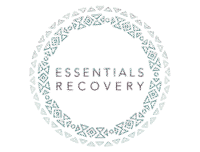Recovery from addiction is more than just quitting a substance or behavior; it’s a journey of transformation. One of the most effective tools in this journey is setting recovery goals. Having clear, achievable goals provides direction, builds motivation, and helps individuals stay focused during challenging times. These goals act like a roadmap, guiding each step toward long-term sobriety and personal growth.
Understanding the Role of Recovery Goals
Recovery goals give purpose to your actions. Instead of focusing solely on staying sober, you create a broader vision of what a fulfilling life looks like. Goals may include restoring relationships, improving physical health, gaining employment, or rebuilding self-esteem. Setting goals also empowers you to take control of your recovery, shifting your mindset from passive healing to active participation.
Goals also help measure progress. Addiction recovery is often filled with ups and downs, and tracking your achievements helps you recognize how far you’ve come. Celebrating small victories builds confidence and reinforces positive behavior, which is vital in maintaining motivation.
Setting SMART Recovery Goals
The most effective recovery goals follow the SMART framework:
- Specific – Clearly define what you want to accomplish.
- Measurable – Include criteria to track your progress.
- Achievable – Set goals that are realistic given your current situation.
- Relevant – Align goals with your personal values and long-term vision.
- Time-bound – Establish a timeframe to reach each goal.
For example, instead of saying, “I want to be healthier,” a SMART goal would be, “I will walk for 30 minutes five times a week for the next two months.” This format makes the goal more concrete and attainable.
Types of Goals to Consider
Recovery goals should cover several areas of life. This holistic approach ensures that you are building a solid foundation for long-term well-being. Here are a few key categories:
1. Sobriety Goals
These focus on maintaining abstinence and building a solid routine to avoid relapse. Examples include attending support group meetings regularly, avoiding high-risk situations, and developing coping strategies for cravings.
2. Mental and Emotional Health
Recovery is as much about emotional healing as it is about physical sobriety. Goals might include beginning therapy, practicing mindfulness, or journaling daily to process emotions.
3. Physical Health and Wellness
Substance use often takes a toll on the body. Health-related goals can include improving sleep, eating nutritious meals, exercising regularly, and attending medical check-ups.
4. Career and Education
Rebuilding life often involves returning to work or school. Goals here might be to complete a resume, enroll in a vocational class, or explore new career paths.
5. Social and Relationship Goals
Healing relationships is a crucial part of recovery. These goals could include reconnecting with family, making amends, or building new sober friendships.
6. Personal Development
Personal growth goals help you rediscover who you are. These might involve reading more, trying new hobbies, setting boundaries, or volunteering.
Prioritizing and Breaking Down Goals
Not all goals need to be tackled at once. Trying to do too much too soon can feel overwhelming and lead to discouragement. Instead, prioritize your goals based on what’s most important right now. Start with short-term goals that are easier to achieve, and gradually build toward long-term ones.
Breaking down larger goals into smaller steps also increases success. For example, if your goal is to move into independent housing, break it down into steps like saving money, researching housing options, and applying for assistance programs. This makes the process more manageable and keeps you motivated as you check off each step.
Monitoring Progress and Staying Flexible
Tracking your progress is essential. Whether you use a journal, an app, or a simple checklist, monitoring helps you stay accountable and celebrate your wins. Be honest with yourself and recognize both accomplishments and setbacks.
At the same time, be open to adjusting your goals as needed. Life in recovery is dynamic, and what seemed important at the start might change over time. Reassessing and refining your goals doesn’t mean you’re failing—it means you’re adapting and staying true to your journey.
Using Support Systems to Reach Goals
You don’t have to set or achieve your goals alone. Support networks like therapists, sponsors, recovery coaches, and support groups can help you clarify your goals and stay on track. Sharing your goals with others can increase accountability and provide encouragement during tough times.
Many recovery programs incorporate goal-setting into their structure. For example, 12-step programs encourage setting spiritual and behavioral goals, while cognitive-behavioral therapy may focus on changing negative thought patterns through structured objectives.
Family and friends can also be valuable supporters if they understand your recovery journey. Consider involving them by sharing your goals and progress with those you trust.
Staying Motivated Through Challenges
Challenges are inevitable in recovery. Stress, temptation, and emotional struggles can make it difficult to stick to your goals. Having a plan in place for tough times is essential.
Try the following strategies to stay motivated:
- Visualize success – Picture how achieving your goal will improve your life.
- Use positive affirmations – Remind yourself daily of your strengths and progress.
- Reflect on your “why” – Remember why you started your recovery journey.
- Practice self-compassion – Don’t let one misstep define your entire journey.
- Reward progress – Celebrate milestones, no matter how small.
Sometimes, just revisiting your list of goals can remind you of your purpose and reignite your drive.
Setting Goals After Treatment
Finishing a treatment program is a major achievement, but it’s not the end of the road. In fact, post-treatment life can bring new challenges, like navigating daily stressors without the structured environment of rehab.
Creating an aftercare plan that includes short- and long-term goals helps bridge the gap between treatment and independent living. These goals might include finding a sponsor, attending therapy weekly, securing stable housing, or building a daily routine.
The more detailed your plan, the more confident you’ll feel transitioning into the next phase of recovery.
Avoiding Common Goal-Setting Pitfalls
Setting goals is powerful, but certain mistakes can derail your progress. Here are some common pitfalls to avoid:
- Being too vague – Undefined goals lack direction.
- Setting unrealistic expectations – Goals should challenge you, not discourage you.
- Ignoring emotional needs – Goals that overlook your mental health can lead to burnout.
- Comparing yourself to others – Everyone’s recovery journey is different; focus on your path.
- Being too rigid – Flexibility is key. It’s okay to revise goals as you grow.
Recognizing these issues early can help you stay focused and grounded.
Final Thoughts: A Journey Worth Pursuing
Setting recovery goals is a vital part of building a life beyond addiction. It turns abstract hopes into tangible actions and gives you a sense of purpose and direction. With each goal you achieve, you not only move further from your past but also closer to the person you want to become.
Recovery is not a straight path, but having a roadmap makes it easier to navigate. With support, patience, and perseverance, your goals can lead you to a fulfilling and lasting sobriety. Whether you’re just beginning your journey or looking to refine your next steps, goal setting offers clarity, hope, and momentum toward a healthier future. Call us today at 855-509-1697.



